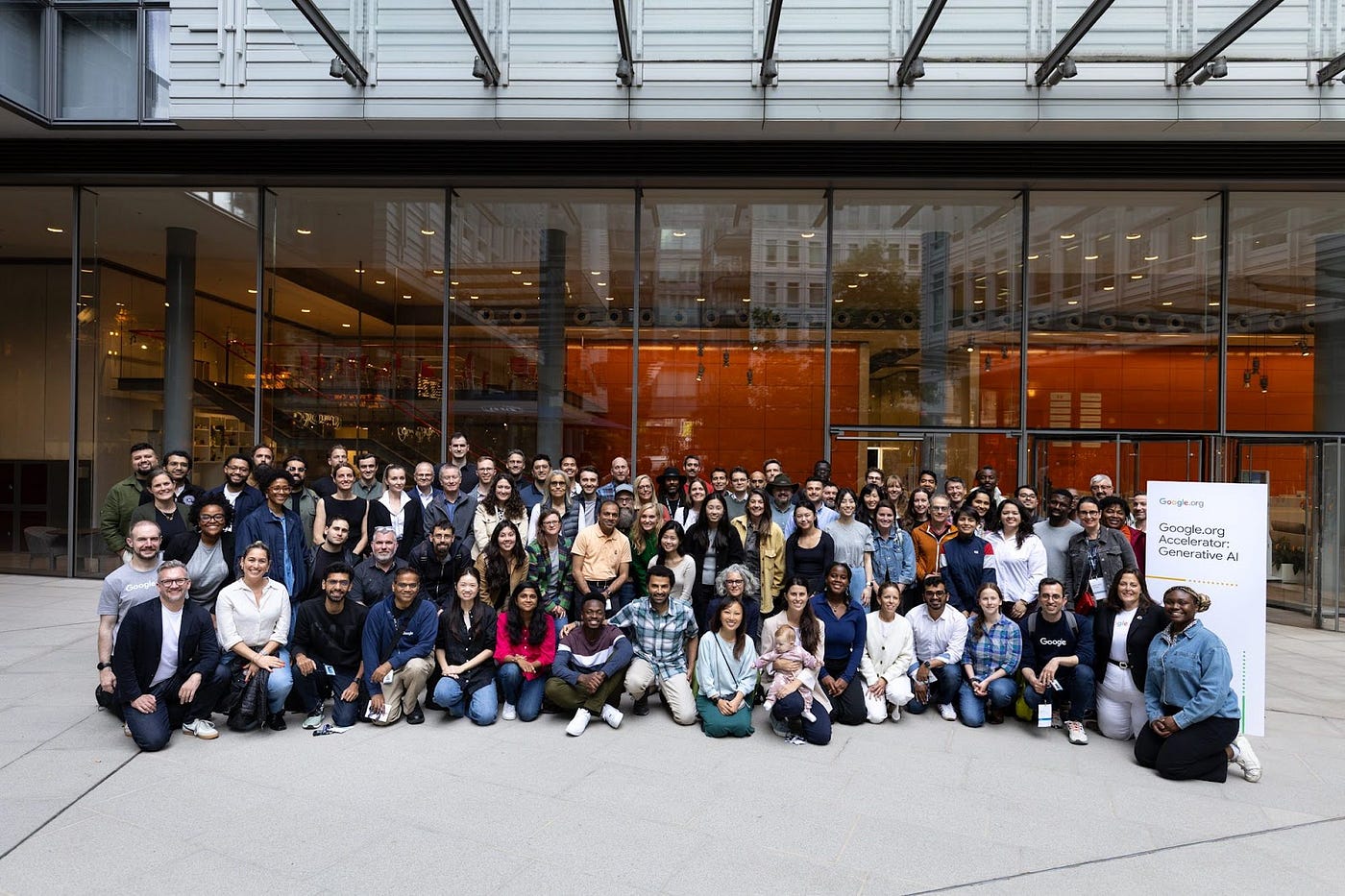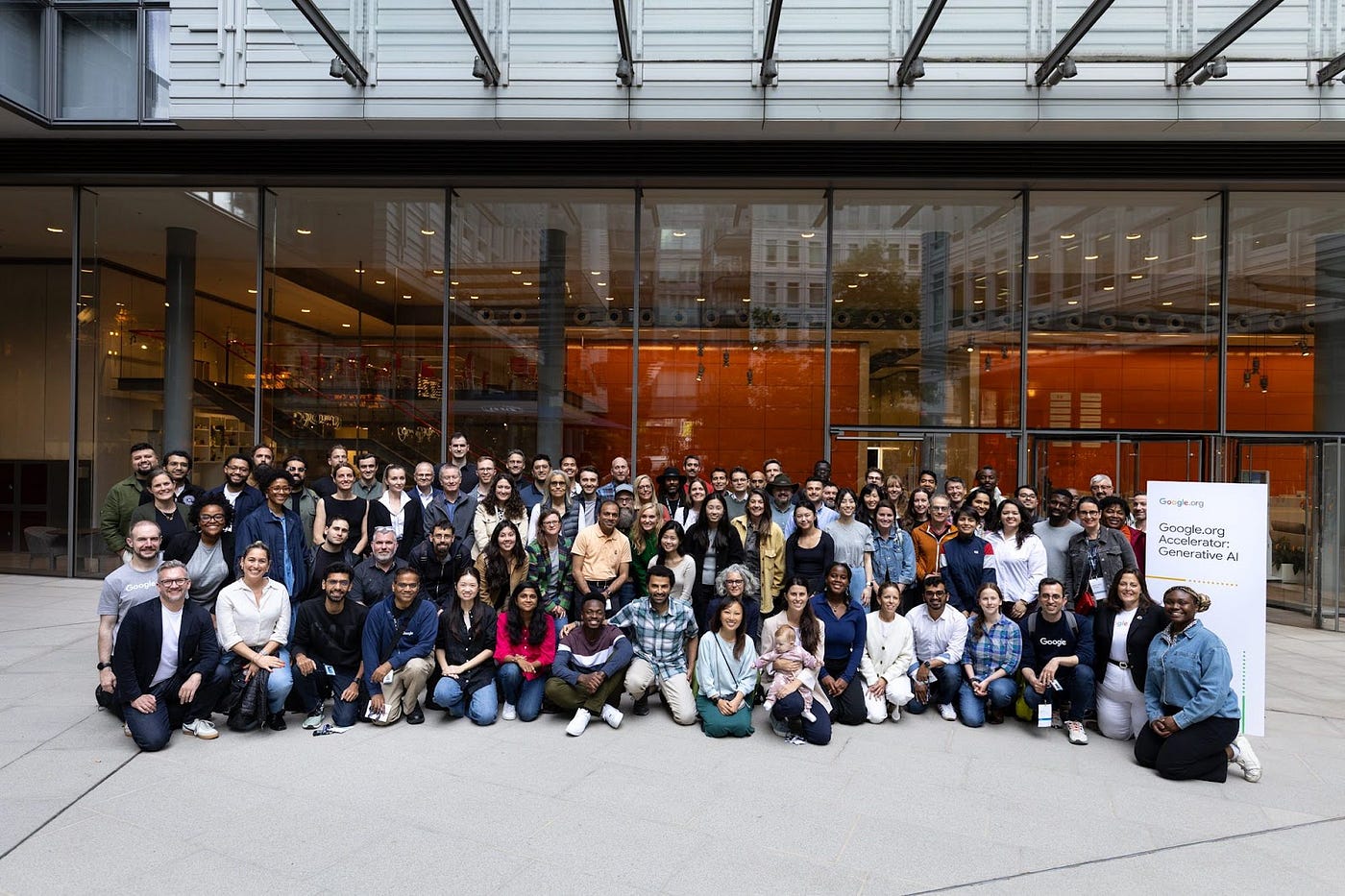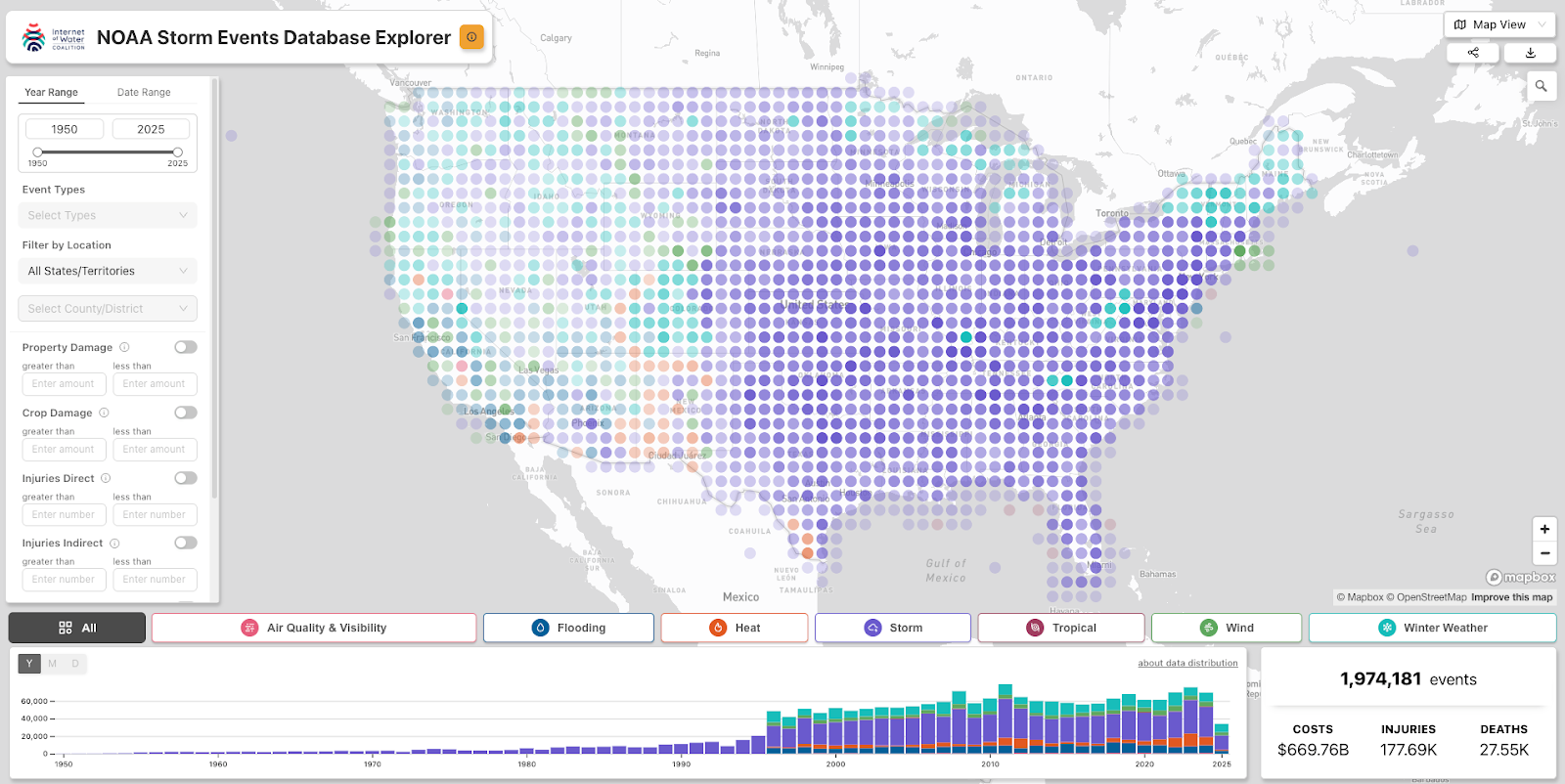A few weeks ago we announced that Earth Genome had been selected for the Google GenAI Accelerator run by Google.org. In the true spirit of an “accelerator”, at about the same time that we announced this, members of the Earth Genome team were already in London for a week-long kickoff at the Google offices.
Here’s my recap of that event, impressions of the foundational tech and some hints of things to come.

First off, what is Google.org and this accelerator? Simply put, its mission is to bring the best of Google — including funding, innovation, and technical expertise — to help solve some of humanity’s biggest challenges.
The Generative AI accelerator program is designed to help organizations use generative AI for social impact. In 2024, the program assisted 21 organizations in developing AI-powered solutions. This year, Earth Genome was one of 20 organizations selected to participate from a pool of over 3000 applications.
Kickoff Recap
Despite knowing that this was an “accelerator” I expected a much more traditional format — especially in the world of nonprofits. They provide grant funding and, in return, we produce deliverables as proposed, right? The entire week served to reframe and reset my expectations.
It was clear from the beginning that the Google nonprofit team cared deeply about all of our respective organizations and the potential impact they could have much more than any dogmatic adherence to a statement of work. Sessions started off by recognizing that we’re expected to continuously learn, adjust and pivot throughout the course of the program. As engineers, we know this will happen (Agile, check) but it’s refreshing to hear a large program inside an even larger organization acknowledge and embrace this reality.
As the week progressed, these ideas continued to be reinforced. We were exposed to new and unreleased tech capabilities, fascinating use cases from other organizations and surrounded by impressive people with genuine enthusiasm for their speciality. We weren’t told to produce certain design artifacts, but instead provided with training on best practice and guides on how to run design sprints. We were asked to work jointly with Google to create OKRs, but not before several presentations on the “why” and “how”. Engineers were pulled from across the globe to meet in 1:1 and provide any input they could. It was evident that the only intent of this program was to increase impact and Google would provide as many resources as possible to make that happen.

Thoughts on Generative AI
You can’t turn over a rock these days without reading somebody’s take on how AI will/won’t take your job, save/doom humanity, or ruin/fix your code. I’m not going to take the bait and make a blanket statement — after all, only Siths deal in absolutes.
This is an AI accelerator however, so what I will say about AI is that the technology is advancing very very quickly indeed. Even at this nascent stage the possibilities for education, healthcare, accessibility, communication, and yes — the environment — are endless. The models themselves will continue to improve but the immense potential is in their careful application to domain specific issues. Market segments that are still adjusting to the dot com era (a quarter century ago now, mind you) will be doubly disrupted.
There are pitfalls and ethical dilemmas for sure — but they exist with any new technology. Nuclear power, internal combustion engines, genetic engineering — none are without great potential for progress and problems. Our unique and un-delegate-able job as humans is to navigate these challenges and apply our ethics to ensure they make the world better, not worse.
So, what’s the plan?
We’re in an interesting spot: Earth Index already uses geospatial foundation models, embeddings, smaller bespoke ML models and lots of other AI/ML technologies at its core. In the coming months, we’re looking at how we can use Generative AI to further improve and expand the user experience across the board. Look for lots of new features around user assisted onboarding, deep search, sharing, publishing and more (shoot us a line if you want to be part of the feedback and testing team).
If any of this sounds like something you might be interested in, we’re hiring….
Other articles

.png)
How we made Amazon Mining Watch more accessible for reporting and enforcement
At COP30, our partners Amazon Conservation and Pulitzer Center launched the new version of Amazon Mining Watch.





